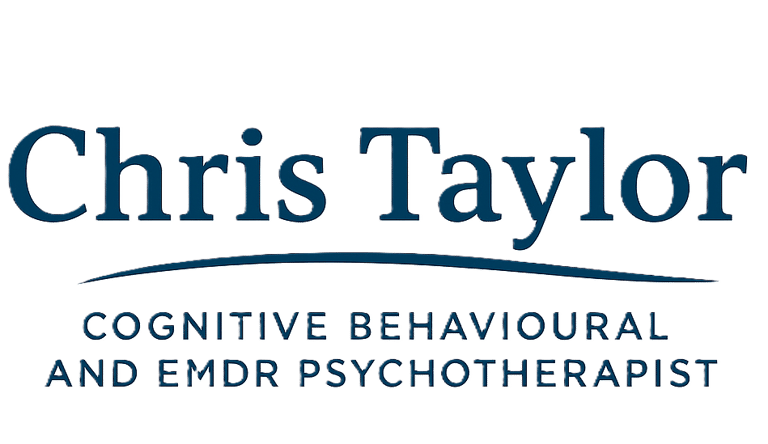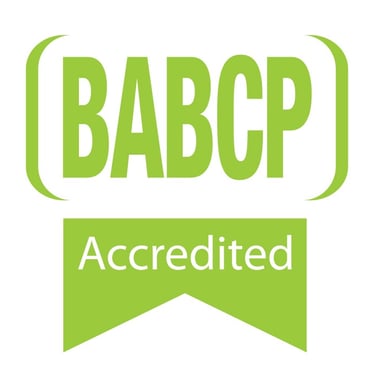What is CBT?
Exploring and understanding your problems can be incredibly beneficial for personal growth and development. Cognitive behavioural psychotherapy (CBT) offers valuable tools for understanding your thought patterns and their impact on your emotions, physiological and behavioural reactions
By recognising these patterns, you can start to reshape those behaviours enabling you to take control of your life. CBT allows you to manage yourself more effectively in reaching your potential, Its a journey of self-discovery and positive change.



What is CBT? The video...
How can CBT help?
Life can be joyous, but at times we all face challenges and problems that seem overwhelming. They just seem difficult to manage or change. Many find their life a struggle. You may have travelled your life with a sense of emptiness or self-critical thoughts, "I am not good enough", even though you are successful. You may feel that your life is hollow or empty.
You may have experienced a recent traumatic incident, leading to distress, anxiety and fear. You may struggle with trauma experienced in childhood and adolescence, the pain which continues to have a dominant influence on the way you today.
You may experience anxiety and engage in repeated rituals and checking behaviours that hold you back. You know its illogical but you struggle to take control. Obsessive compulsive behaviour is quite simply dominating your life. Or you may be avoiding social situations. In truth, the majority of people want to make sense of their own experience and make sustained change and recovery.
What can CBT help with?
Post traumatic stress disorder
Social anxiety
Self-confidence
Stress
Sexual abuse
Panic
Perfectionism
Phobias
Plus many more...
Addictions
Anger
Anxiety
Bereavement
Excessive worry
Health anxiety
Insomnia
Low self-esteem
Obsessive compulsive disorder


CBT is an evidence based psychotherapy and recommended by the National Institute for Clinical and Care Excellence (NICE) and other professional organisations for a range of psychological problems.
Anxiety - What is it?
We all get anxious! Anxiety is essential for survival and self-preservation. Anxiety ensures we are vigilant and responsive to threat. Anxiety, as with all psychological conditions can have a huge influence on our physical health. When we feel anxious we may experience a racing heart, stomach sensations "butterflies", and other physiological symptoms. When faced with threat we will either face that threat (Fight) or avoid it (Flight). Why then is anxiety considered bad?
Obsessional compulsive disorder (OCD), Generalised anxiety disorder (GAD), Health and social anxiety as well as phobia all have anxiety at their core . Anxiety is a "fear of something", or " that something bad " will happen. Lets look a little deeper...
OCD - Is noted for rituals (Mental and physical) that people use to reduce the feeling of anxiety. OCD often has a fear that I or other's will come to harm if I do not engage in rituals, such as counting. Once a link is established between beliefs of keep others safe and rituals, then the continued cycle continues.
GAD - Has worry as a central component, but is based on fear. Worry plays a role in trying to reduce anxiety related to a situation. Worry neither reduces anxiety and people will seek absolute assurance that something will be OK or that the threat does not materialise. However, this is usually unsuccessful leading to further worry.
Health anxiety - Fear's related to health often generate high levels of health anxiety. If you are worried about your health and "symptoms" then this may be a normal or justified response which needs to be checked by a GP. However, even after an underlying illness have been ruled out you may continue to focus on your health with continued worry. This worry is often typified by avoidance of situations that trigger health fears, result in frequent reassurance seeking or checking your body for blemishes or marks that signify serious illness.
Social anxiety - Social anxiety, like most anxiety problems have their origins in past experience and memories. Typified by an immense fear "what others will think", people with social anxiety will be internally focused, "am I going red", "If I say something they will think I am boring" and so on. A common feature of anxiety is avoidance of social situations. The problem with avoidance is that it keeps the fear going and therefore the problem is sustained.
If you have anxiety, OCD, Worry all the time (GAD) fear social situation or worry about your health contact me to discuss treatment options.


Depression
Depression is a common and often debilitating mental health condition. Ranging from periods of low mood in the context of a situation i.e. loss, to deeper depression with unknown origin.
Described by many as the "black dog" depression can have impact on you, relationships, work or study. Psychological symptoms of depression include...
Continuous low mood or sadness
Feeling hopeless and helpless
Having low self-esteem
Feeling tearful feeling guilt-ridden
Feeling irritable and intolerant of others
Having no motivation or interest in things
Finding it difficult to make decisions
Not getting any enjoyment out of life
Feeling anxious or worried
Having suicidal thoughts or thoughts of harming yourself
Depression can be treated...
Contact me and we can discuss options..


We "all bring something different to the table" either via experience and/or psychological challenges. No two people are the same and we are all unique. However, the process of CBT tends to follow a similar format with many different approaches used and adapted to meet your needs.
What happens in CBT?


First session - Setting the scene and assessment
You can expect the first session to focus on putting you at ease, feel comfortable and safe. Once you are ready, I will ask questions and take information, including your name, GP (Where you want to share) and contact details. We will cover the therapy agreement which covers use of video or telephone equipment, cancellations, payment of fees, complaints etc. I will ask you about your expectations of CBT and what you are hoping to achieve.
I will ask what has brought you to CBT, and gather information that will enable us to understand what the most appropriate treatment should be. I will ask you about risk issues, including self-harm. I will take the session at your pace, no rush. A second assessment session may be required. At the end of the assessment I will share my observations and thoughts on your treatment. CBT is a collaborative endeavour and I will ask you what your thoughts are on my assessment. If we agree, we can move towards treatment.
Treatment
I will explore with you your knowledge and understanding of your difficulties.
I will help you to see the links between your past experience, beliefs, thoughts, emotions and behaviours. The aim here is so you can understand the problem from a different perspective and psychological understanding.




